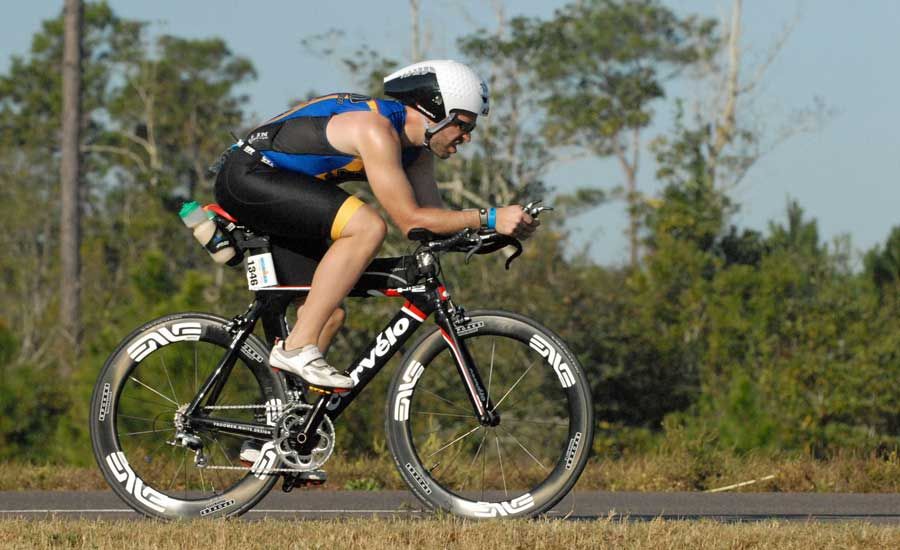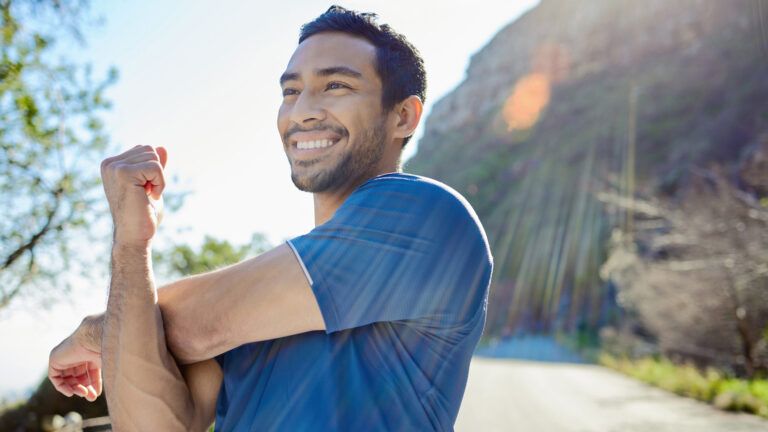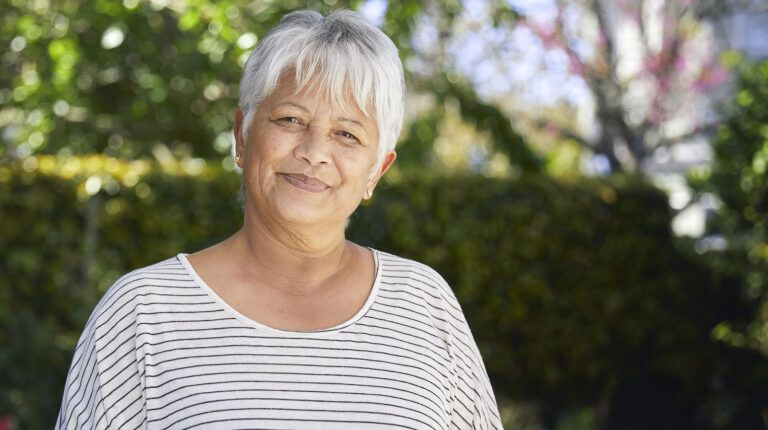For many people, tuning into their spiritual self includes meditation, prayer or attending a Sunday morning church service. For Ragan Sutterfield, the author of the new bookThis Is My Body, getting in touch with his whole self means pounding the pavement, sweating through 50-mile runs and pushing his body to its breaking point.
The husband and father of two has run countless races, from quick 5ks to ultra-marathons and even the Ironman – an endurance athlete’s version of the Olympics– but he’ll be the first to tell you, his love of running and his view of his own body didn’t come naturally. As an overweight, unathletic teenager, Sutterfield often struggled to fit in with the jocks that populated his Arkansas high school. Making the decision to treat his body in a way that was more in tune with God’s will rather than the than the teachings of the church didn’t happen until years later, after bad lifestyle habits took their toll.
In This Is My Body, Sutterfield bares all to the world, detailing his addiction to smoking, his terrible eating habits, his unhealthy view of his own body (as influenced by sermons his preacher gave on Sundays), his failed marriage and finally, his turning point: one influenced by his return to faith and his wife.
Guideposts.org spoke with the author on why he felt the need to share his personal story so publicly and how he hopes his new book will spark a body conscious revolution.
When did you first get the idea that your journey and your struggles with weight could transition into a book?
I had been thinking a lot about the body and the importance of reclaiming the place of the body in the whole of ourselves and had wanted to do some writing on that. So I had this conversation with my friend and then went and did a workout that was in preparation for the Ironman and it was after that workout that it dawned on me that I’ve had this long struggle with my own body and that would be a good way to approach these ideas that I wanted to get at.
It’s such an inspiring book and very thought-provoking, but it’s also really personal. There are some parts of your life that you share that are very intimate and I’m sure, difficult to write. Was there ever a time when you thought “I don’t want to share this”?
Several of the people that offered endorsements, that was one of the things they commented on was the honesty and the baring all. I felt like as I was writing it, I just needed to put it down as it had happened and as I had experience it. I wasn’t thinking ahead about “What’s this going to be like?” In the writing, I needed to express it as truthfully and honestly as I could and now I’m kind of thinking, “Oh wow, people are going to be reading all of this,” but in part I’m glad that I did it the way I did because I think so many people have these kinds of experiences. I don’t think I’m alone in this and so it’s helpful to express them honestly. This, in a way, invites the reader into my own struggle because they can identify with it. All of us have different kinds of struggles with our bodies so I think being honest about mine helps people learn to be honest about theirs.
You go back and forth between events in your past life and your current training for the Ironman and I found the training sections so interesting. Why do you think people have such a fascination with athletes that push themselves and compete in these long endurance races?
For me, it sort of brings you to this moment of truth. I talk about it in the book while doing an ultra marathon in the Ozark Mountains. It’s this process through which I really have to face the reality of myself. When, after running 20 miles, there’s no way to ignore the body but there’s also no way to ignore the place that the will or spirit has. All these things have to show up in order to complete a race like that so that’s what draws me to the ultra endurance races. I enjoy and I love 5ks and I love shorter distance races but I don’t find the same journey towards truth as I find in an Ironman or an ultra marathon. I think a lot of other people have experienced that as well. People running marathons and taking on these endurance races, it’s because they’re discovering the same kind of thing.
You talk about how the church views the body and how that affects how we view everything from sex, to exercise to healthy eating. Does that negatively impact the way we view our body and how would you like to see those teachings in the church change?
It’s a negative understanding of the body and it has real consequences. I mention in the book there was a Northwestern study of health and weight in religious communities and denominations like the Southern Baptists and more evangelical denominations were the most unhealthy and I think that is a consequence of the kind of view of the body that those denominations have tended to have. It’s really not a biblical view of the body. One of the cornerstone understandings of Christianity is resurrection, this idea that the body is something that will continue on. Our bodies matter. It isn’t this shell that we just slough off and there’s really not a Biblical basis for that kind of understanding. That’s something that we get later from Greek philosophy and the Enlightenment era thinkers. So what I’d like to see is the church to really embrace the idea that we live and move and communicate and exist in the world through our bodies. If we’re concerned with living as Christ lived then we need to embrace embodiment in the same way that Christ did. The very idea of God becoming human is that God took on skin and bones and flesh to be embodied and that’s what it means to be human. So for us to follow in Christ’s pattern we need to embrace our embodiment.
What was the ultimate turning point for you when it came to how you viewed your body?
It was a slow process but there were two things that really clicked around the same time. I had been a part of the Episcopal church which is a very liturgical church. I’d had some of the worst of my struggles with the body but it really clicked and sank in when I returned to the church after a time away from faith. When I came back to the church, the rhythms of praying with the prayer book and participating in the Eucharist and praying in a way where I kneeled and stood, those sorts of things helped draw my body back into my faith. But the greatest turning point was in meeting my wife Emily. She has never had a struggle with weight, she hasn’t had the same kinds of struggles I’ve had with the body but she loves to move and it’s her way of returning to her whole self. It’s her way of praying. She’s not doing it because she needs to burn a certain number of calories. She tries to swim every day, go for a long walk every day — those are the things she’s doing because she needs to spiritually, as well as to feel healthy. Seeing her model that took me out of this view. I had tried at different points to get in shape but that had been because I felt unhealthy. I needed to fix my body. It’s this warped view of exercise. This kind of chore that I need to get through in order to burn calories to obtain a body that met the standards of magazines better. But when I met Emily and started to see how she experienced her body and exercise, it was completely different. It didn’t come natural at first but I was able to stick with it long enough where the transformations began to happen.
Do you still struggle with your weight and how you view your body?
Oh, absolutely. I think with any revelation or epiphany we have it’s always a continuing effort to hold onto that. Right now I’m in this stage with a newborn baby and sleepless nights so it becomes more of a temptation to eat the kinds of foods that I know don’t make me feel good and to not take the time in a busy schedule to do the things that will make me feel healthy. All of those things are continuing struggles but what I’ve learned in my experience is to be able to identify them in that way. To be able to say “Ok, this ice cream I may want to eat, that’s really not going to make me feel healthy. It may be a momentary pleasure but it’s something that I can pass by because I’m going to really feel sick tomorrow. Or my run tomorrow’s not going to be very good because I’m staying up too late.” I’ve experienced in my body what it feels like to be healthy so it’s hard to go back to that place in my life where I’m not healthy.
What do you hope readers get from your book and story?
My greatest hope is that readers will leave the book with a renewed sense of the joy that is possible in their bodies and also a sense that their bodies have an integral and important place in the whole of themselves. It’s not just this thing that is external to us that we will get rid of someday, but that it’s a really important part of ourselves and was meant to be a gift. It certainly doesn’t always feel like that. We all have struggles in our bodies; health problems and things come up that are beyond the results of just our personal choices and that’s just part of the condition of the world we live in, but just like love or relationships, because difficulties exist doesn’t mean it’s still not a gift.






